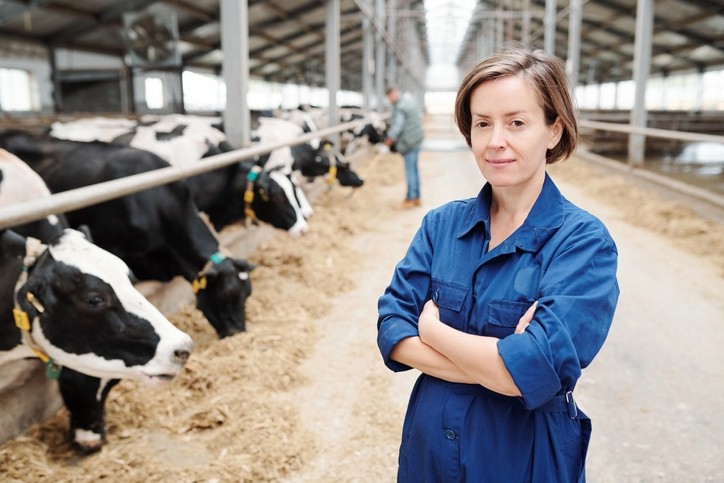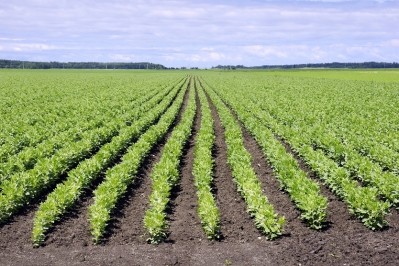Replacing soybean meal with faba bean, lupin or pea seeds has highly variable effects on dairy performance

Processing treatments could enhance the nutritive value of such seeds, they said. But more details are needed about the various treatments available to understand their effects in vivo.
Replacing SBM by PS in dairy cow diets has been studied for many years, they noted in a paper published in the journal, Animal Feed Science and Technology.
Compared to soybean meal, PS contain less crude protein (CP). In addition, proteins of raw PS are more degradable in the rumen, decreasing their nutritive value for ruminants. To counteract this, heat-treatments of PS have been developed to reduce the rumen degradability of PS proteins and thus to improve their nutritive value, noted the animal scientists.
Hypotheses
The objective of their study was to quantify the effects on nitrogen metabolism and dairy performance of substituting SBM for PS or replacing raw with treated PS in dairy cow diets, focusing on three types of PS: faba bean, lupin and pea.
Two databases were created, which gathered information on in vivo and in situ results, respectively, they said.
“Our first hypothesis was that raw seeds, compared to SBM, would lead to higher ruminal degradation of proteins and lower dairy performance. Our second hypothesis was that treated PS compared to raw seeds would lead to lower ruminal degradation of proteins and higher dairy performance.”
To validate these hypotheses, they searched the literature for published data on the digestion of raw or treated PS in dairy cow diets and a meta-analysis performed to highlight the trends and quantify their effects on nitrogen ruminal degradability, nitrogen intestinal true digestibility, ruminal parameters, nitrogen partitioning and milk production and composition.
These were then used to analyze nitrogen ruminal degradability, nitrogen intestinal true digestibility, ruminal parameters, nitrogen partitioning and milk production and composition.
A total of 32 and 36 articles were analyzed from the in vivo and in situ databases, respectively, said the authors.
Statistical analyses assessed the effects of substitution for each measured or calculated variable; t-tests were applied to compare the difference between the tested feed (i.e. raw or treated PS or treated PS) and the control feed (i.e. SBM, or raw PS respectively), they said.
Findings
The use of raw PS instead of SBM led to higher nitrogen ruminal degradability (on average +16g/100g) but treatment of these seeds led to a decrease in nitrogen ruminal degradability (-13g/100g on average) compared to raw seeds.
Replacing SBM by raw faba bean, lupin or pea in the iso-crude protein diets of dairy cows led to an increase in ammonia (NH3) in ruminal fluid (+20 mg/L) and tended to decrease milk protein content.
However, when those seeds were treated and their values compared to those of raw seeds, nitrogen in milk tended to increase, but milk fat content was decreased.
Despite the limited amounts of available data and the great diversity of feeding practices, some general trends appear from this quantitative review, they said.
“Proteins from raw PS were more degradable in the rumen than proteins from SBM, as revealed both by in situ studies and by in vivo ruminal NH3 measurements, which is in accordance to our first hypothesis. This ruminal N degradability was lowered by heat treatments, confirming our second hypothesis, but even so the amount of PIA6 [dietary protein entering the intestine assuming a particle outflow from the rumen of 0.06 h−1PS] did not reach levels obtained with SBM because of the differences in CP content.
“Evaluations of in vivo dairy performance indicated that milk protein content and milk nitrogen secretion were decreased with raw PS compared to SBM, thereby confirming our first hypothesis. In contrast, no major effect was observed when PS were treated compared to raw PS, not supporting our second hypothesis, except for a decrease in milk fat content, especially for extruded faba bean and lupin.”
Finally, at similar CP content, nitrogen transfer as protein in milk remained lower with treated PS than with SBM, but differences were small, said the scientists.
When SBM was replaced by raw PS, or when raw PS were replaced by treated PS, the observed variability of responses in milk production and composition could partly be explained by the variations specific to each study, and particularly the dietary level of digestible methionine, they remarked.
Treatment of seeds are variable - use of different processes, pressures and temperatures - and feeding practices of dairy cows are diverse - maize silage or grass silage as main forage, forage:concentrate ratio ranging from 84:16 to 40:60 - which can dilute the effects of the addition of PS (added at up to 30g/100g of dietary dry matter) to the dairy cow diets, noted the team.
“When PS were heat-treated, technological processes were most often not fully described, which led to uncertainty about the intensity of the process the seeds may have undergone. A better description of these heat or pressure treatments would permit a better understanding of their effects on PS, and consequently the effect on dairy performance when these seeds are fed to dairy cows.”
Source: Animal Feed Science and Technology
DOI: https://doi.org/10.1016/j.anifeedsci.2020.114758
Title: Raw or technologically treated proteaginous seeds as alternatives to soybean meal for dairy cows: Comparative evaluation by meta-analysis of in situ and in vivo digestive parameters, nitrogen partition and dairy performance
Authors: S Mendowski, P Nozière, A Ferlay, P Denis, G Chesneau, P Chapoutot












